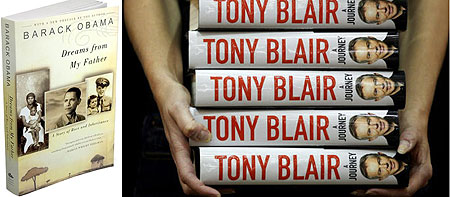Why would anyone like to read a book – is the question I asked myself when I sat down to write my latest book review in these pages recently. While pondering over this question, I decided to ask my editor to permit me to delve straight into the world of books and book writing in a ten-part series at the end of which I hope some of you will join what is today is many people’s favorite past time all over the world.


Why would anyone like to read a book – is the question I asked myself when I sat down to write my latest book review in these pages recently.
While pondering over this question, I decided to ask my editor to permit me to delve straight into the world of books and book writing in a ten-part series at the end of which I hope some of you will join what is today is many people’s favorite past time all over the world.
There are many types of books. There is the memoir – a true life experience and a favorite for public figures who would like to document their stories in their own way and even ordinary folks, who think they have a simple but interesting story to tell.
For example, Tony Blair has just released his memoirs, "A Journey” which apart from anything else has documented his take on power and the epic struggle he undertook and lost against his friend but political archrival Gordon Brown.
On the other hand Barrack Obama wrote his "Dreams of My Father” when he was preparing to venture into politics in 1995, after travelling the world in search of his real being.
Today, both books are best sellers. Blair’s because everybody would like to know what really happened in No 10 Downing Street in Blair’s 11 year rule of Britain while Obama’s because now that he is a global political phenomenon, everybody would like to dissect every little detail of his former ordinary life and his rise to greatness.
In both occasions, the two will make loads of money for themselves and for their publishers, but they will also leave their own undiluted legacy in form of their sentences and words, for history.
The other interesting genre of books is fiction writing. There are so many forms of fiction which almost anybody who can read and write has come in contact with at least one form – children literature, chicklit, literary fiction, scientific fiction, romantic fiction, historical fiction, name it.
As children we get introduced into children’s fiction at a young age in school, in simple story books that have basic story lines and are meant to teach you the craft of reading and appreciating the language.
In teenage years, we meet romantic fiction, the Mills and Boon type where it all a mishmash of romantic emotions. The authors try to woo readers with epic romantic stories and the kind of unconditional love fairy romance.
At the same time, the thriller comes in, stories by the likes of Robert Ludlum and Sidney Sheldon which have fast paced story lines that keep you off the edge of your seat, flipping through the book page by page like a thriller movie, murders, court cases, passionate affairs, the wealthy and mighty, fast cars, condos and bungalows, to name but a few.
These books play of the reader’s what can be. This genre is also called popular fiction because successful books become instant bestsellers, bought in millions of copies and hence making the author instantly rich.
Science fiction are basically filled with science and is the fodder for nerds or guys who live in the world of astronomy, aliens, new viruses, and the world in 2150, especially in their heads.
In literary fiction, books are meant to portray life the way it is. Literary fiction is not about being bombastic or using flashy words, putting too many emotions to affect the reader let alone trying to impress the reader.
Here, the principle is ‘show but don’t tell a story.’ You don’t narrate every part of a story but your words must be able to give the picture that you need to portray. This is one of the hardest fiction genres because success here lasts for centuries.
Think off Chinua Achebe (Nigeria), William Shakespeare (Britain), Franz Kafka (Germany), Vladimir Nabokov (USSR) etc. Shakespeare has been dead for 400 years while Nabokov has been for fifty years, but their works have a life of their own.
This is where writers get most respect, win hundreds awards which come with hefty cash prizes like the Nobel Prize for Literature (US$ 1.4 Million), the Man Booker Award (£50,000) and the Caine Prize for African Writing (£5,000), Commonwealth Writers Prizes (£10,000 - £1,000 )
However, a book can become a crossover success.
For example Shakespeare’s Romeo and Juliet is a romantic fiction, a popular fiction and a literary fiction. The Lord of the Rings is a children fiction, fantasy fiction, popular fiction and a successful adult fiction.
Next week we explore profiles behind the greatest writers and the true stories behind great books and writers to wet you appetite about the world of books.


